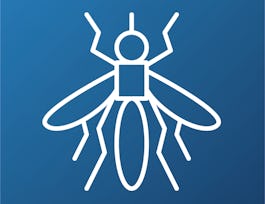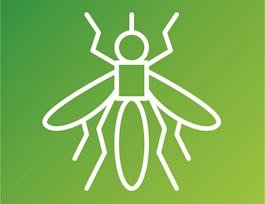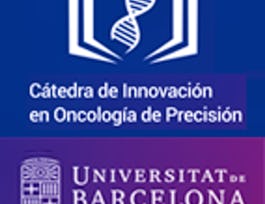The other two courses in this specialisation require you to perform deterministic modelling - in other words, the epidemic outcome is predictable as all parameters are fully known. However, this course delves into the many cases – especially in the early stages of an epidemic – where chance events can be influential in the future of an epidemic. So, you'll be introduced to some examples of such ‘stochasticity’, as well as simple approaches to modelling these epidemics using R. You will examine how to model infections for which such ‘population structure’ plays an important role in the transmission dynamics, and will learn some of the basic approaches to modelling vector-borne diseases, including the Ross-McDonald Model.


Building on the SIR Model
This course is part of Infectious Disease Modelling Specialization
Taught in English
Some content may not be translated

Instructor: Nimalan Arinaminpathy
2,853 already enrolled
Included with 
Course
(21 reviews)
What you'll learn
Distinguish between stochastic and deterministic models, explain when either are appropriate, and perform simple simulations of a stochastic model
Identify where it is important to incorporate population structure in a model and design and simulate a transmission model capturing such structure
Evaluate the assumptions behind the Ross MacDonald model, and code such a model using R to simulate the dynamics of a vector-borne disease
Critically evaluate a modelling study and communicate its strengths and weaknesses to a scientifically literate audience
Skills you'll gain
Details to know

Add to your LinkedIn profile
Course
(21 reviews)
See how employees at top companies are mastering in-demand skills

Build your subject-matter expertise
- Learn new concepts from industry experts
- Gain a foundational understanding of a subject or tool
- Develop job-relevant skills with hands-on projects
- Earn a shareable career certificate


Earn a career certificate
Add this credential to your LinkedIn profile, resume, or CV
Share it on social media and in your performance review

There are 4 modules in this course
The other two courses in this specialisation have focused on performing deterministic modelling - that is, the epidemic outcome is predictable as all parameters are fully known. However, there are many cases, especially in the early stages of an epidemic, where chance events can be influential in the future of an epidemic. In this module, you will be introduced to some examples of such ‘stochasticity’, as well as, simple approaches to modelling these epidemics using R.
What's included
5 videos8 readings3 discussion prompts5 ungraded labs
In the basic deterministic SIR model, all susceptible individuals in a population are subject to the same risks of infection. However, there are many important infectious diseases where certain groups of the population account for a disproportionate amount of transmission: these are not always the same groups that bear the greatest amount of morbidity and mortality. In this module, you will examine how to model infections for which such ‘population structure’ plays an important role in the transmission dynamics.
What's included
2 videos2 readings4 discussion prompts6 ungraded labs
Many important diseases are not directly transmitted between hosts, but depend on ‘vectors’ to pass infection between hosts, for example biting insects. It is important to be able to extend the modelling approaches you have studied so far to capture these more complex forms of natural history. In this module, you will learn some of the basic approaches to modelling vector-borne diseases, including the Ross-McDonald model, which is a framework that provides an important foundation for such diseases.
What's included
6 videos1 reading2 discussion prompts4 ungraded labs
Even if you are not designing and simulating mathematical models in future, it is important to be able to critically assess a model, to appreciate its strengths and weaknesses, and to identify how it could be improved. One way of gaining this skill is to conduct a critical peer review of a modelling study in the position of a reviewer evaluating it for publication in a journal. This module is reserved for the completion of your assignment - for you to apply the knowledge and skills you've developing throughout this specialisation.
What's included
1 peer review1 discussion prompt
Instructor

Offered by
Recommended if you're interested in Public Health

Imperial College London

Imperial College London

Xi'an Jiaotong University

Universitat de Barcelona
Prepare for a degree
Taking this course by Imperial College London may provide you with a preview of the topics, materials and instructors in a related degree program which can help you decide if the topic or university is right for you.
Why people choose Coursera for their career




Learner reviews
Showing 3 of 21
21 reviews
- 5 stars
76.19%
- 4 stars
19.04%
- 3 stars
0%
- 2 stars
0%
- 1 star
4.76%
New to Public Health? Start here.

Open new doors with Coursera Plus
Unlimited access to 7,000+ world-class courses, hands-on projects, and job-ready certificate programs - all included in your subscription
Advance your career with an online degree
Earn a degree from world-class universities - 100% online
Join over 3,400 global companies that choose Coursera for Business
Upskill your employees to excel in the digital economy
Frequently asked questions
Access to lectures and assignments depends on your type of enrollment. If you take a course in audit mode, you will be able to see most course materials for free. To access graded assignments and to earn a Certificate, you will need to purchase the Certificate experience, during or after your audit. If you don't see the audit option:
The course may not offer an audit option. You can try a Free Trial instead, or apply for Financial Aid.
The course may offer 'Full Course, No Certificate' instead. This option lets you see all course materials, submit required assessments, and get a final grade. This also means that you will not be able to purchase a Certificate experience.
When you enroll in the course, you get access to all of the courses in the Specialization, and you earn a certificate when you complete the work. Your electronic Certificate will be added to your Accomplishments page - from there, you can print your Certificate or add it to your LinkedIn profile. If you only want to read and view the course content, you can audit the course for free.
If you subscribed, you get a 7-day free trial during which you can cancel at no penalty. After that, we don’t give refunds, but you can cancel your subscription at any time. See our full refund policy.

